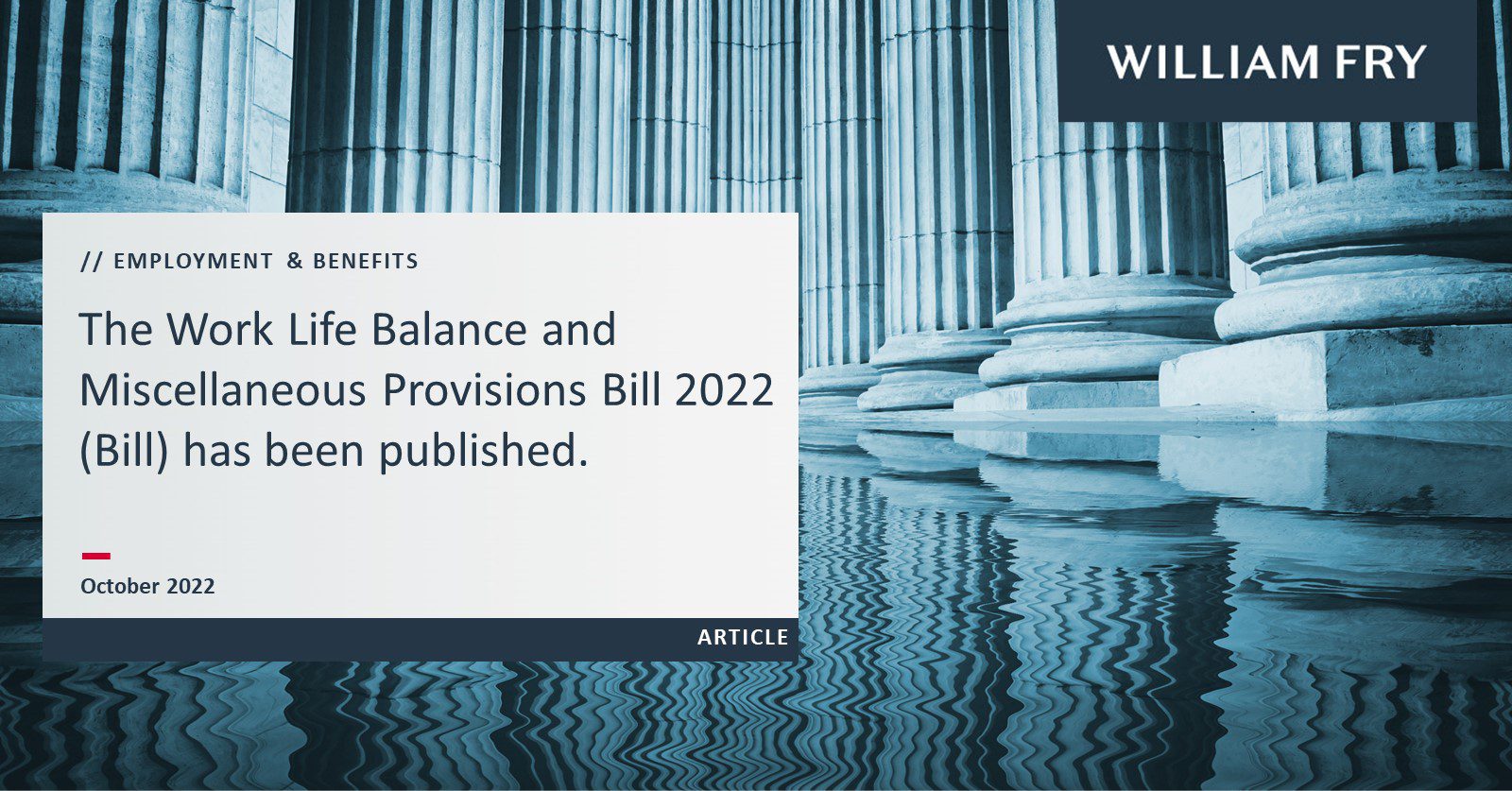The Work Life Balance and Miscellaneous Provisions Bill 2022 (Bill) has been published.
The Bill will transpose the EU Work Life Balance Directive (Directive) into Irish law and provide additional statutory entitlements to parents and carers in support of a better work life balance.
Three of the key changes to be introduced by the Bill are:
- The introduction of five days unpaid leave per year to provide care or support to certain categories of people.
- A right for parents and carers to request flexible working arrangements for caring purposes.
- The extension of the current entitlement to breastfeeding breaks under the Maternity Protection Acts from six months to two years.
Five Days Unpaid Leave for Serious Medical Care
Under the Bill employees will be entitled to five days unpaid leave per year to provide personal care or support to certain categories of people for serious medical reasons. The categories of people include a spouse, partner, cohabitant, certain relatives and child (a Care Recipient).
Employees will be required to confirm to their employer in writing, as soon as reasonably practicable, that they intend to take or have taken this leave. Employers may request evidence of the employee’s relationship with the Care Recipient, the nature of the personal care or support required and a medical certificate to evidence the Care Recipient’s serious medical issue.
Employees must take a minimum of one day at a time and may take the five days together.
Right to Request Flexible Working for Caring Purposes
The Bill will provide employees with the right to request flexible work to enable them to provide care to a Care Recipient for a set period of time. Flexible work can be an adjustment to the employee’s working arrangements, work patterns and/or working hours.
Employees must have at least six months’ service before they are entitled to request flexible work.
Employees must make their request for flexible working arrangements at least eight weeks before the proposed start date of the flexible working arrangement. Employers may request evidence of the relationship with the Care Recipient as well as the nature of the care required and details of the Care Recipient’s serious medical issue.
Employers are obliged to respond to the request within four weeks of receipt although this may be extended by a further eight weeks if they are having difficulty assessing the viability of the request. Employers will be required to balance the needs of the employee with the needs of the workplace when considering a request and must provide reasoning for their decision.
An employer may postpone the start of the proposed flexible working arrangement if the arrangement would have a substantial adverse effect on their business for reasons such as seasonal variations in the volume of the work concerned, the unavailability of a person to carry out the duties of the employee in the employment, or the nature of those duties. Where a flexible working arrangement is postponed, the employer must consult with the employee in relation to the postponement. A flexible working arrangement cannot be postponed more than once unless the reason for the postponement is a seasonal variation in the volume of the work concerned, in which case, the arrangement cannot be postponed more than twice.
On the expiration of the period of flexible working, the employee shall be entitled to return to the working arrangements held immediately before the commencement of the flexible working arrangement.
The right to request flexible work is separate and distinct from the right to request remote work. It is also independent and in addition to parents’ existing statutory right to request flexible work upon their return from parental leave.
Maternity Leave Policy
Another key change the Bill seeks to introduce is the extension of the entitlement to paid time off work for breastfeeding breaks. The Bill proposes to extend this entitlement from a period of 26 weeks to two years.
The Bill also proposes to extend the Maternity Protection Act 1994, as amended to transgender men who have obtained a gender recognition certificate in accordance with the Gender Recognition Act 2015 and subsequently become pregnant.
Next steps
Employers should review and amend their existing family and caring leave policies to ensure compliance with the new legislation once enacted, given that the entitlements outlined above are in addition to those already in place.
The Bill as initiated is available here.
Contributed by Cliodhna Hand



